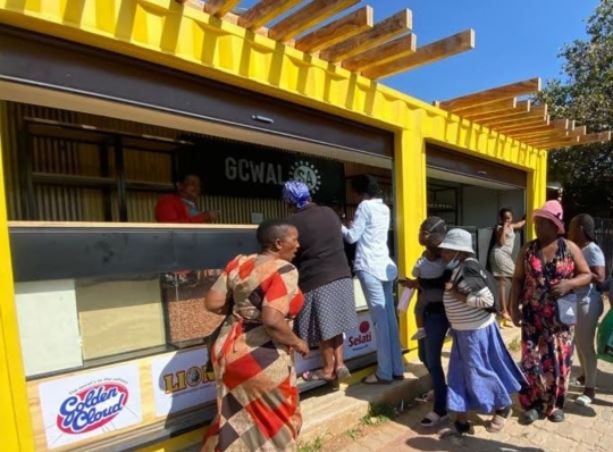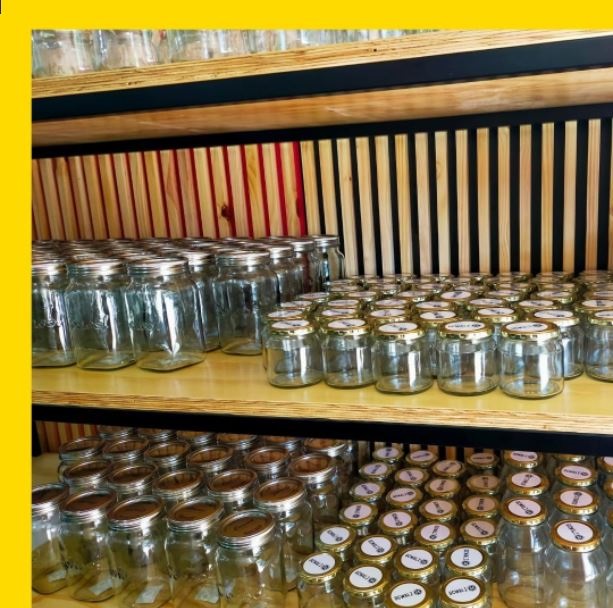
Gcwalisa is a local retail outlet that uses refillable dispensers to allow customers to buy a selection of basic food items and household products through a weigh-and-pay model, for as little as R5.
Similar to how we used to buy atchar for five rand or less at the local tuck shop, Kubheka remembered past experiences where his mother would send him to buy sugar in a mug – and he has brought that the people on a more nutritious scale.
"I knew that it's not a foreign concept. People would warm up to it because they have been and still are doing it," he said.
"This was just to streamline that and make sure that now they can benefit or get the same price as if they were buying bulk but for smaller items."
The food outlet, located in the township of Alexandra, aims to provide individuals who are either food insecure or at risk of being food insecure to buy non-perishable, nutritional food products with any amount of money at their disposal.
The products in his store include 250g of rice, sugar, and beans for just R5 each. Customers can also buy 250g of Samp. maize meal, and maize rice for as little as R3, and 250g of flour for R4.
Other items include a single tea bag for 5 cents, and salt and soups for the winter season.
How it started
The initiative started in 2020 at the height of the lockdown. Through a kitchen accelerator, Kubheka and those he worked with gave people in need over 300 meals to combat hunger.
"At that time I partnered with an organisation called SA Harvest. We helped rescue excess food from retailers and farmers, but we quickly realised that that's not a sustainable model because there are always more people hungry the next day," Kubheka said.
To move away from what he called the "charity case system that forces people to always resort to begging", the entrepreneur thought it would be a good idea to rather sell nutritious food staples to the community at affordable prices.
He has now partnered with brands such as Unilever and big retailers that sell the food staples to him in bulk at discounted prices.
"One of the things that is very important is that consumers are very brand conscious. If someone doesn't have money, they don't usually just buy something because its cheap.
"They want the authentic stuff, and the reason for that is that when you are poorly paid, you don't have the luxury to get the product wrong. It has to do what it says. It must rise three times if it's Tastic [rice]," he said.
How it works
There are three ways to do it, according to Kubheka. Customers can come with their own lunch box and buy the non-perishable staples that they need through the weigh-and-pay system.
"As a convenience, if you remember that you need to buy something, we can also weigh and sell it to you in a biodegradable paper bag. This is to feed people while being good to the environment," he said.
Kubheka has also introduced reusable glass containers in his store. This is to allow repeat customers to use the same container, while also solving the problem of littering the environment.
"There is a huge demand for cooking oil, we sell that in glass jars. You can return the jar and we refill it for you.
"That's actually been a hit more than we thought it would be. People love those glass jars," he said.
In addition to employing community members to run the store, Kubheka said the plan is to target other parts of Alexandra and eventually launch a store in Diepsloot. This will feed more people and also create jobs.

